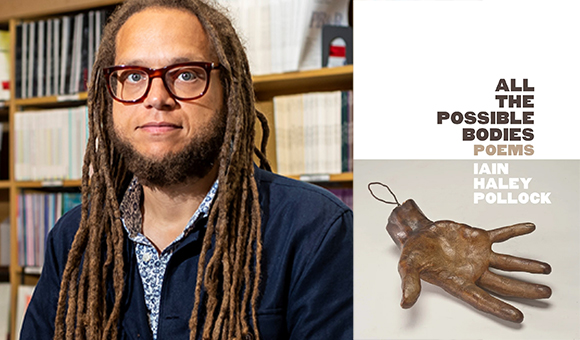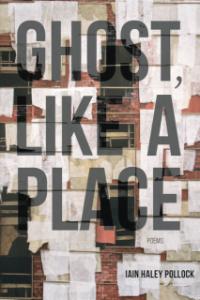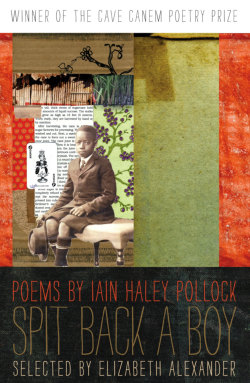Iain Haley Pollock
Iain Haley Pollock is the author of three poetry collections, Spit Back a Boy (University of Georgia Press 2011), Ghost, Like a Place (Alice James Books 2018), and All the Possible Bodies (Alice James Books 2025). Individual poems have appeared in a variety of publications, including American Poetry Review, The Kenyon Review, The New York Times Magazine, and The Progressive. Pollock has received several honors for his work including the Cave Canem Poetry Prize, the Alice Fay di Castagnola Award from the Poetry Society of America, a NYSCA/NYFA Artist Fellowship in Poetry, the Bim Ramke Prize for Poetry, and a nomination for an NAACP Image Award. He serves as Director of the MFA Program in Creative Writing at Manhattanville University in Purchase, NY.

All the Possible Bodies
“In weaving resilience from the delicate fabric of the existential questions permeating the lives of African American men, All the Possible Bodies shimmers with a brilliance that allows the light of honesty and courage to penetrate the dense mass existent in the swirling of race and caste in America. Pollock is a brave poet, gifted with a voice that is the way of articulating his own body and soul while delicately tending to what gives life to all of us.”
—Afaa M. Weaver, author of A Fire in the Hills
Ghost, Like a Place

This collection highlights the complexities of fatherhood and how to raise young kids while bearing witness to the charged movements of social injustice and inequities of race in America. Memory, culpability, and our very humanness course through this book and strip us down to find joy and inspiration amid the darkness.
Alice James Books
Iain Pollock has a slow, steady hand that's fine tuning the pentatonic chambers where whole and half notes of the heart glisten the world. This Ghost, like a Place is a phantasm of small psalms settling into territory familiar with new beginnings and bearing ragged, but revealing truths.
—Tyehimba Jess, author of Olio, winner of the 2017 Pulitzer Prize for Poetry
“The ghosts that haunt Iain Haley Pollock’s poems have substance. Some have names: Tamir. Rex. Emmett. Black boys of Philadelphia. Their voices are ‘the chattering of crows in a distant sycamore.’ There is awe in these voices, and self-deprecation, and lament. Most—despite the fact that there is little comfort to offer here—there is a faith in the body, in humanity, to bear its burdens. Read Ghost, like a Place, and ‘know, finally, the rapture and wildness of belief.'”
—Meg Kearney, author of Home By Now

Spit Back a Boy
Iain Haley Pollock’s poems cover the ground from a woman late to catfish supper to an ancient queen who howls, “Sea, you is ugly,” from the creaking of slave ships launched from Lancaster to gunfire on a contemporary Philadelphia street. Such lyric moments find grounding in stories woven through this book—in one story line, a boy with a black mother and white father wishes he could shed his white skin or carve into what lies beneath: “I flung my almost white self / into my mother’s embrace—that brown / embrace I hoped would swallow me whole / and spit back a boy four shades darker.” Another thread follows a marriage and a woman intertwined with hunger and the blues, a woman who hears a whale song in a refrigerator’s hum, who cries hard like the lonely barking of a fox.

